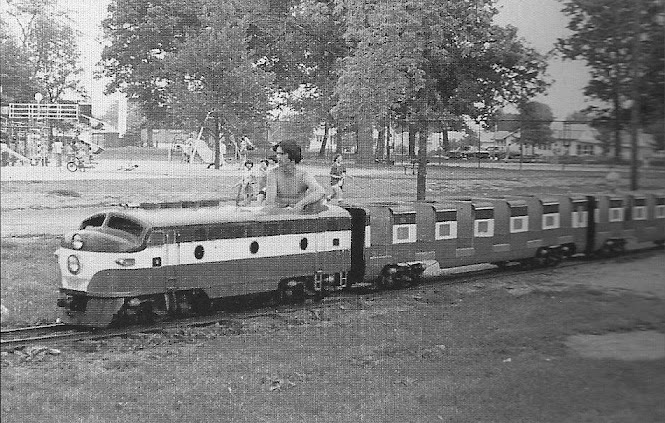 |
| Louis Armstrong |
Al Capone supported jazz musicians. Capone was a big fan of jazz music, and he helped to promote and support Negro jazz musicians in Chicago.
During the Prohibition Era (1920-1933), alcohol was banned in the United States. It's claimed that Al Capone owned, in whole or part, a few hundred speakeasies in Chicago. His love for live jazz music played in speakeasies to attract more patrons. The performances saved jazz musicians from poverty and provided musicians with a steady income and stable living conditions, helping them focus on their music and promoting the development of jazz music. This also explained why the Jazz Age overlapped with the Prohibition Era.
Between 1923 and World War II, Chicago was the jazz capital of the world thanks to the Great Migration, which brought thousands of Negroes from the Deep South to Chicago's South Side. More than 70 nightclubs, ballrooms, and theatre halls lined the Douglas Community's Bronzeville Neighborhood streets, particularly along a stretch of State Street known as "The Stroll" from 31st to 39th Streets.
 |
| The Sunset Café, 315 East 35th Street, Chicago, Illinois. |
Louis Armstrong, Cab Calloway, Count Basie, Earl Hines, Jelly Roll Morton, Fats Waller, Billie Holiday, King Oliver and his Creole Jazz Band, and Nat King Cole all came of age in clubs owned and controlled by Al Capone. Sadly, "The Stroll" was demolished after World War II.
sidebar
The Sunset Café is highly recognized in the earliest forms of U.S. jazz history.
The Sunset Café held significant value to the infamous Al Capone. Joe Glaser's mother was the original owner of the building until her passing. She leased the building to Edward Fox and Sam Rifas, who were direct employees of Al Capone. After Louis Armstrong and Joe Glaser left for New York, Edward Fox became the sole manager of the Café and the band under the leadership of Earl Hines. Since the Café was located within the Chicago Outfit properties, that connection allowed the Sunset Café to remain open during the Great Depression, unlike many other jazz clubs.
sidebar
Joe E. Lewis, comedian, actor and singer, was attacked by Al Capone lieutenant, "Machine Gun" Jack McGurn's men in 1927 after he refused to take his act to the Green Mill Cocktail Lounge, 4802 North Broadway, which Capone partly owned.
Lewis was assaulted in his 10th-floor Commonwealth Hotel room, on November 8, 1927, by three enforcers sent by McGurn. The enforcers, including Sam Giancana and Leonard "Needles" Gianola, mutilated Lewis by cutting his throat and tongue and leaving him for dead. Capone was fond of Lewis and was upset with the assault but would not take action against one of his top lieutenants. Instead, he provided Lewis with $10,000 ($175,000 today) to aid his recovery and eventually resumed his career.
Later renamed the Grand Terrace Café when Al Capone bought a 25% stake, this "black-and-tan" (integrated) jazz club was one of the most essential venues in music history. It's where Earl "Fatha" Hines and Louis Armstrong made a name for themselves playing duets in the mid-20s. A few years later, it's where Cab Calloway and Nat King Cole landed some of their first professional gigs alongside legends like Count Basie, Dizzy Gillespie, Charlie Parker, Sarah Vaughan, and even Benny Goodman.
When the Grand Terrace Café opened in place of the Sunset Café, pianist Earl Hines took up the mantle of bandleader. Ed Fox managed both Hines and the club. During Hines' time at the Grand Terrace, the band was broadcast nationally every weekend for an hour on WMAQ and another hour on WNEP.
The Grand Terrace Café closed in 1940, and the building served as the district office of Congressman William L. Dawson for many years. Glaser sold the building to Meyers' father, Henry, in 1962, who then opened Meyers Ace Hardware.
Capone's support helped to make jazz music a mainstream art form.
As a result of Capone's support, jazz music flourished during the Prohibition era, making jazz music a mainstream art form.
It is important to note that Capone's support of jazz musicians was not entirely altruistic. He saw jazz music as a way to make money and gain influence. However, his support positively impacted the development of jazz music, and he is credited with helping to make it one of the world's most popular genres of music.
Compiled by Dr. Neil Gale, Ph.D.
sidebar
June 28, 2023, 10:12 AM CT.
Thank you, Neil, for unequivocally portraying Al Capone the way he was. It is an excellent article. There was a reason that my family was so good to the opposition.
Your Friend,
Deirdre Marie Capone















